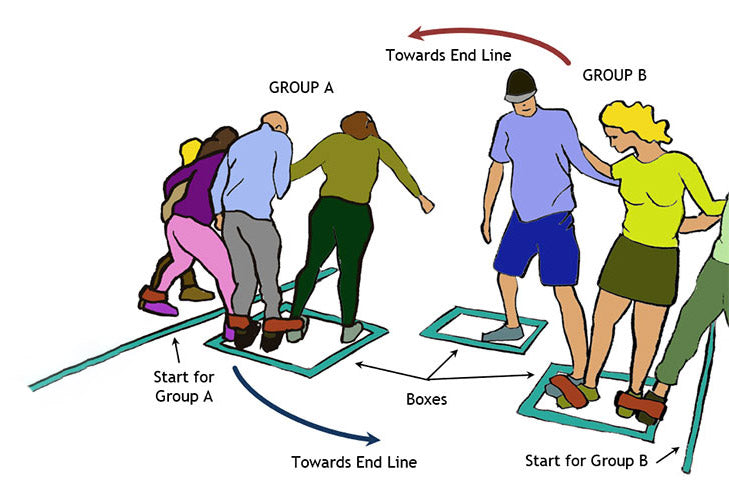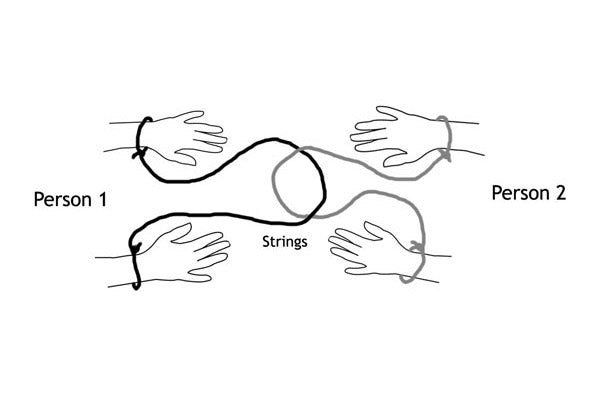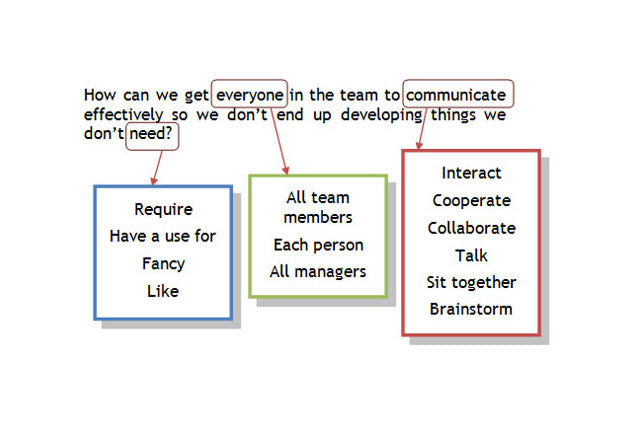Purpose
The problem presented in this activity encourages a better understanding of the effect of team work in problem solving. Although looking manageable individually at first, participants soon realise the need for cooperation with team members in solving the problem. This exercise is quite applicable to everyday work and it encourages delegates to examine their own behaviour and understand best approaches. It also allows delegates to consider long term effect of problems.
Objective
Groups to complete a set of puzzles.
What You Need
- Sets of small puzzles, generally up to 10 pieces. You need one set per group
- Envelopes, one for each group
- Prizes!
Pre-Course Preparation
- Assign a number to each puzzle set and write it on the back of each piece in the set.
- Write this number on an envelope
- Place the pieces of the puzzle in the relevant envelope
- Take one piece out of each envelope and put it in another envelope, where it would not fit the puzzle. Repeat until all envelopes have one piece from another set
- Seal the envelopes
Setup
- Divide the delegates to groups of 2 or 3 participants
- Distribute one envelope to each group
- Explain that this is a problem solving exercise. They need to open their envelope and put the puzzle together. The team who finishes first wins the prize.
- “Are you ready…on my count…go…”
- Give them 15 minutes and then follow with a discussion.
Timing
Explaining the Test: 5 minutes.
Activity: 15 minutes
Group Feedback: 5 minutes.
Discussion
How did the exercise go? Did anyone win? How did you feel when you discovered that you don’t have all pieces of the puzzle? How did you go about finding the missing piece? Were others willing to help you get your piece? Did you trade your pieces with others? Were others willing to let go of their pieces once they knew what you wanted? Did any team give up a piece they didn’t need? Why did they do that?
How does this relate to your workplace? Do you need resources from other departments who are not so willing to let go of? How can you apply the technique you used here back at work? Is it possible for everyone to get the pieces they want?
Some people find this exercise to be initially simple and show signs of boredom, until they realise a piece is missing. That’s when the fun begins!
There is a famous saying that “science is a multiplayer puzzle game” and if we are ever going to discover and progress forward, we need to know how to work together to solve this grand puzzle.
Variations
An interesting variation is to take two pieces put of each set (or more) and add one from two other sets. This biases the game towards trading, negotiation, using strategy, diplomacy and general cooperation.
Comments
By Eshaal Fatima @ Saturday, June 16, 2018 3:03 AM
Great
Soft Skills Training Materials
Get downloadable training materials
Online Train the Trainer Course:
Core Skills
Learn How to Become the Best Trainer in Your Field
All Tags
Training Resources for You

Course Design Strategy
Available as paperback and ebook

Free Training Resources
Download a free comprehensive training package including training guidelines, soft skills training activities, assessment forms and useful training resources that you can use to enhance your courses.

Our Comprehensive Guide to Body Language

Train the Trainer Resources
Get Insights - Read Guides and Books - Attend Courses
Training Materials
Get downloadable training materials on: Management Training, Personal Development, Interpersonal Development, Human Resources, and Sales & Marketing














Leave a comment
All comments are moderated before being published.
This site is protected by hCaptcha and the hCaptcha Privacy Policy and Terms of Service apply.